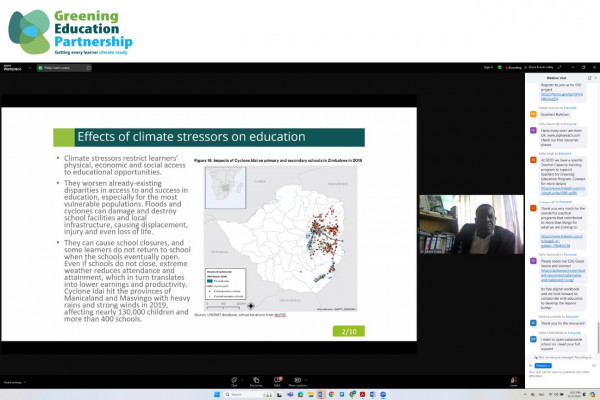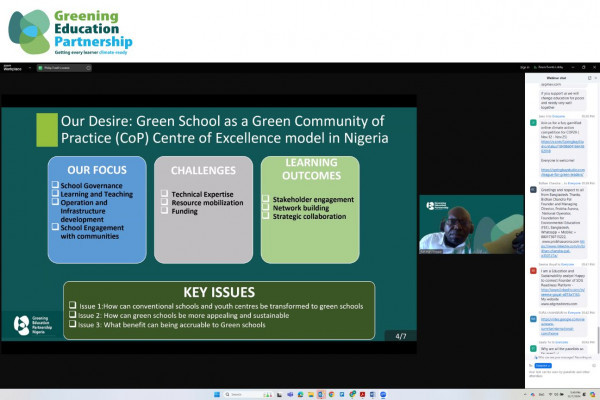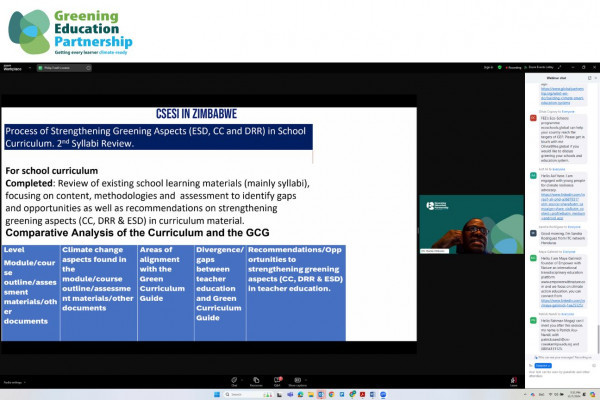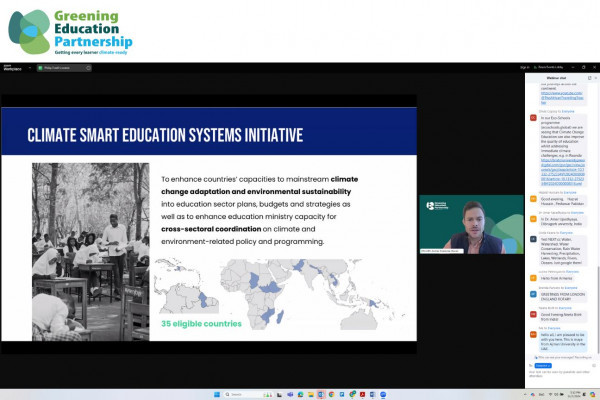News
Ajman University Engages in Global Dialogue on Building Climate-Smart Education Systems
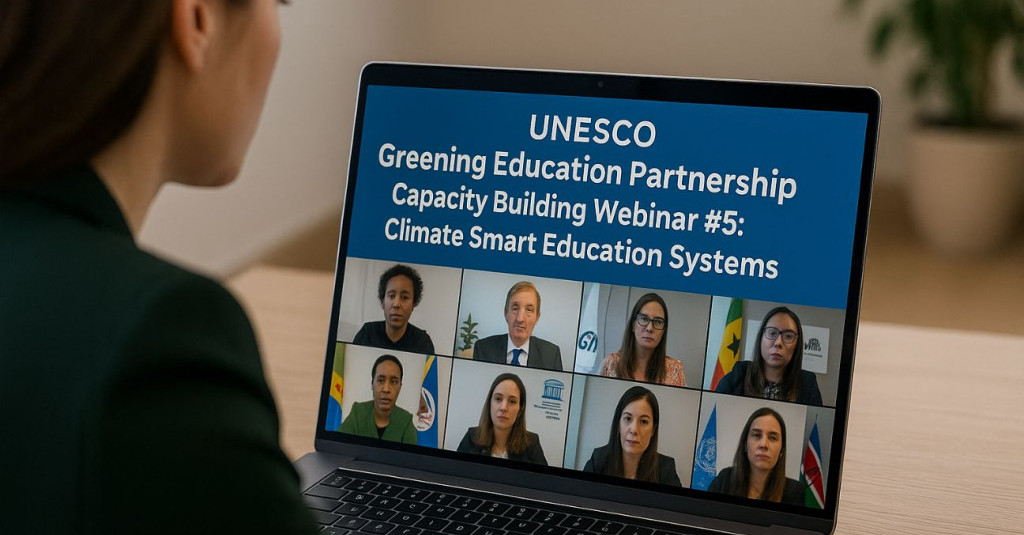
In a demonstration of its commitment to sustainability and global educational leadership, Ajman University (AU) was an active participant in the recent ‘UNESCO's Greening Education Partnership Capacity Building Webinar #5: Climate Smart Education Systems.’ The virtual event, held on November 7th, brought together international experts to tackle the critical intersection of climate change and education.
The webinar addressed fundamental questions for the future of education, exploring what constitutes a climate-smart education system and how global actors can collaborate to build and strengthen them. The session provided a comprehensive overview of a 7-dimension framework for action, offering practical insights into creating resilient educational infrastructures in the face of climate challenges.
Key topics on the agenda included climate risk analysis for schools, fostering coordination between ministries, integrating climate awareness into national curricula, and enhancing transnational cooperation for climate-smart education.
“Participating in such forward-thinking global forums is essential for a university that aims to be at the forefront of addressing world challenges,” said a representative from Ajman University. “Engaging with the strategies discussed in this webinar directly informs our own sustainability initiatives and curriculum development, ensuring our students are prepared to be the solution-makers of tomorrow.”
The event featured a distinguished panel of speakers from leading global organizations, including representatives from the Ministry of Primary and Secondary Education and the Ministry of Climate Change in Zimbabwe, Save the Children, UNESCO, the UNESCO International Institute for Educational Planning (IIEP), the Global Partnership for Education (GPE), and GEP Nigeria.
Ajman University’s attendance at this high-level webinar underscores its strategic focus on integrating sustainability across its operations and academic programs. By engaging with international best practices and frameworks, the university continues to strengthen its role in contributing to the UN Sustainable Development Goals (SDGs), particularly Quality Education (SDG 4) and Climate Action (SDG 13).
The knowledge gained from this session is expected to influence AU’s ongoing projects and its commitment to fostering an environmentally conscious and resilient campus community.
